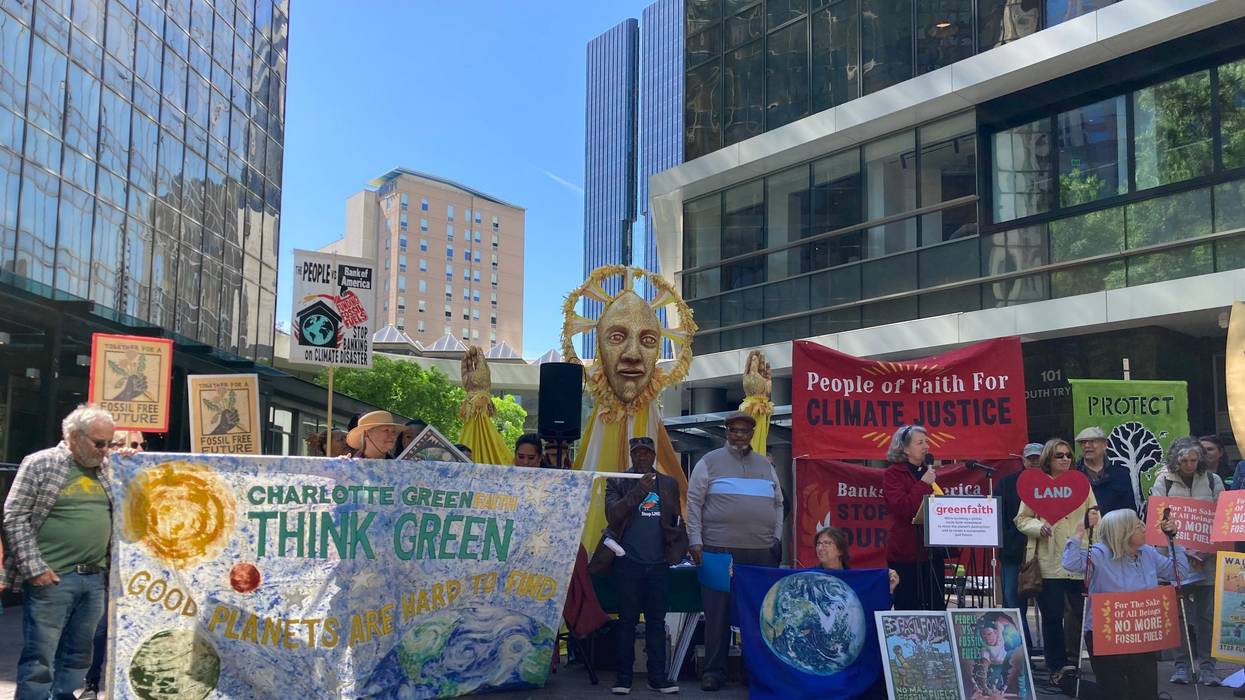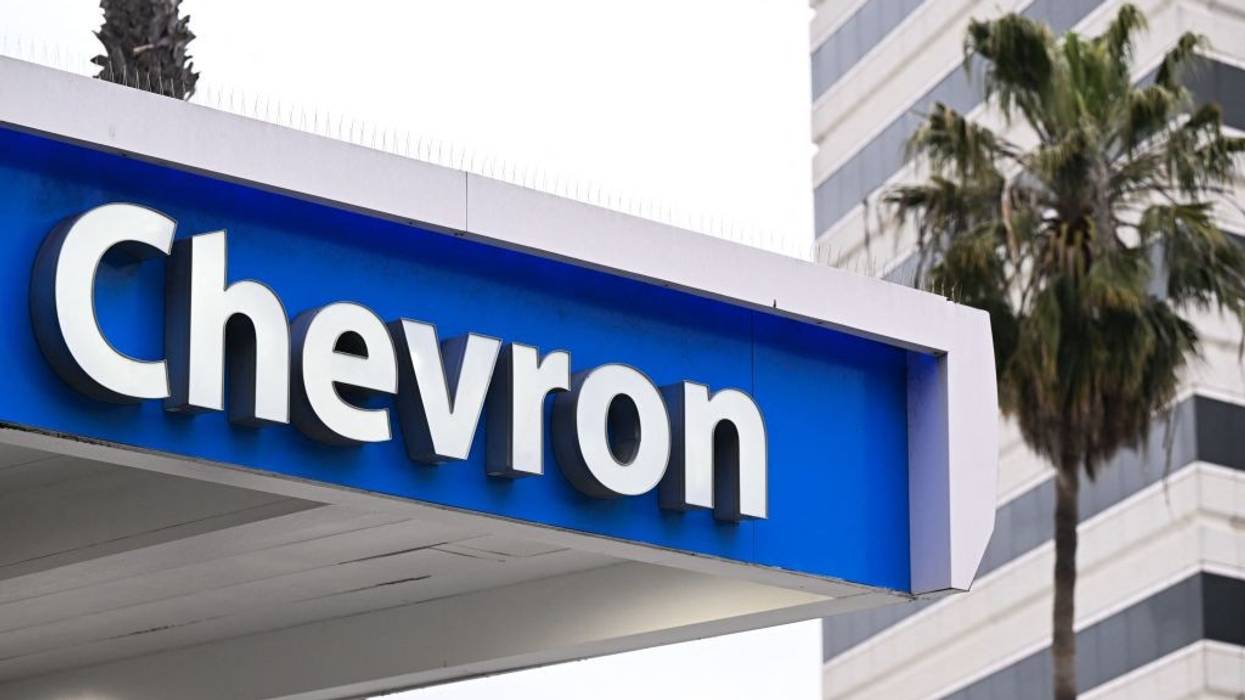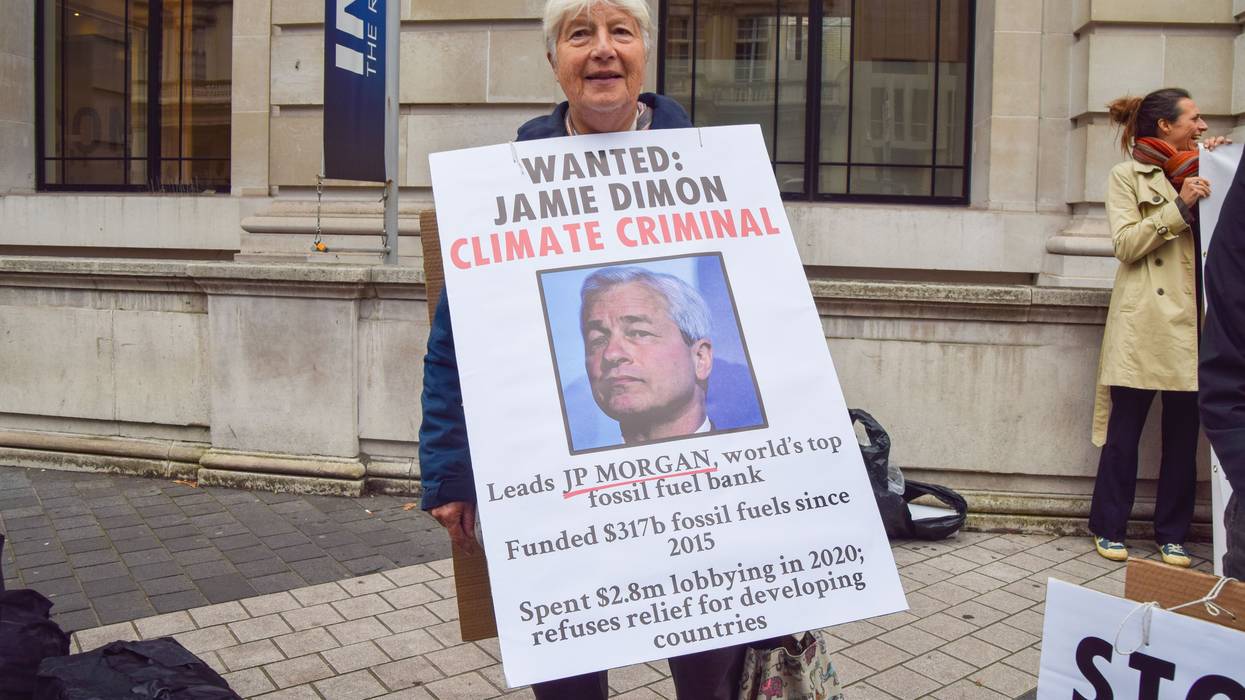Of the hundreds of shareholder resolutions that have been filed so far in 2023, the report identifies 43 proposals that decry corporate attempts to redress climate inaction, racial inequity, abortion restrictions, and gun violence. Additional anti-ESG proposals are likely to be filed in advance of annual shareholder meetings, which usually take place in May.
Most of the proposals come from groups that are key players in the Right's war on "woke" capitalism.
Groups Leading the Charge
The
National Center for Public Policy Research (NCPPR), a right-wing advocacy group, has filed at least 17 anti-ESG proposals with various corporations this year, the most of any conservative organization profiled in the report. NCPPR has spearheaded a campaign it calls Stop Corporate Tyranny, which rails against "cancel culture" and accuses corporations of both allowing themselves to be weaponized against "traditional American values" and silencing conservative perspectives in adopting "the progressive Left's extreme and radical agenda."
Quoting
Fox News host Tucker Carlson, NCPPR claims that "the biggest threat to liberty is no longer big government, its [sic] big business."
NCPPR
claims that "the biggest threat to liberty is no longer big government, its [sic] big business."
The campaign is part of NCPPR's Back to Neutral Coalition, which
includes the American Legislative Exchange Council (ALEC), the right-wing corporate bill mill that works with state lawmakers across the country to enact pro-corporate legislation. ALEC chief executive Lisa Nelson is a member of the NCPPR board.
The
National Legal and Policy Center (NLPC), another major anti-woke culture warrior, has filed the second most anti-ESG shareholder proposals this year. A former associate member of the State Policy Network (SPN), a right-wing coalition of free market think tanks, the so-called "watchdog" group has received funding from major right-wing donors, including the Sarah Scaife Foundation.
The majority of NLPC's proposals are concerned with "ties to Communist China" and have been filed with large multinational corporations such as Starbucks, McDonald's, Merck, General Motors, Boeing, and Apple. A different
resolution targeted at Meta, the parent company of Facebook, demands a report on "government censorship."
Climate Change
Corporate policies that attempt to curb fossil fuel use and address the climate crisis have long raised the ire of right-wing groups—many of which receive major funding from the oil and gas industry.
NLPC filed memos with the Securities and Exchange Commission (SEC) urging shareholders at
Bank of America, Citigroup, Goldman Sachs, and Wells Fargo to vote against proposals asking the banks "to take additional actions to reduce greenhouse gas emissions." Shareholder meetings for all four financial institutions are being held next week.
Steven Milloy, a former Fox News columnist and lobbyist for the tobacco and fossil fuel industries who currently sits on the board of the libertarian Heartland Institute, filed a shareholder proposal with Alliant Energy pressing the company to justify its "pure fantasy" of ever achieving net-zero emissions.
Milloy also filed a
proposal at Chevron that would require the energy giant to rescind its 2021 emissions reduction pledge. The proposal appears to have been crafted in conjunction with Strive Asset Management, the company founded by anti-woke firebrand and 2024 Republican presidential contender Vivek Ramaswamy.
Investment fund magnate David Bahnsen filed a proposal with Chevron demanding that the company establish a committee to analyze the risks associated with decarbonization goals, and NCPPR filed a similar proposal with Duke Energy.
Victims of "Diversity"
Six of NCPPR's shareholder proposals raise concerns about racial justice initiatives undertaken by companies, a leitmotif in the Right's attacks on "stakeholder capitalism" and ESG investing, along with alleged reverse racism against white conservatives. Last year, the
director's letter in NCPPR's Investor Value Voter Guide 2022 promised that the guide would help proxies vote "against the new racism and sexism of 'equity'" and "other hard-left goals of so-called stakeholder capitalism and ESG." (The organization's 2023 guide has not yet been released.)
Other proposals focus on anti-discrimination and "viewpoint diversity." For instance, NCPPR's proposal for the grocery chain Kroger calls for a report detailing "the potential risks associated with omitting 'viewpoint' and 'ideology' from its written equal employment opportunity (EEO) policy." The SEC ruled that Kroger could
omit the proposal.
NCPPR warns against "committing illegal or unconscionable discrimination against employees deemed 'non-diverse'" in the name of "so-called 'equity.'"
At
Home Depot, NCPPR hopes to rescind the racial equity audit that shareholders agreed to at the company's 2022 annual meeting. In a proposal with McDonald's, NCPPR warns against "committing illegal or unconscionable discrimination against employees deemed 'non-diverse'" in the name of "so-called 'equity.'"
NCPPR also takes up claims of liberal media bias and "viewpoint discrimination" in its proposal filed with AT&T, which criticizes the company for not renewing DirecTV's contract with the right-wing
One America News (OAN) in the wake of its incendiary coverage of the 2020 presidential election and the subsequent insurrection.
For reasons not disclosed,
Inspire Investing, a "biblically responsible" investing firm that champions anti-abortion and anti-LGBTQ views, ended up withdrawing its proposal on the "risks" associated with anti-discrimination policies, which it had filed with M&T Bank.
Abortion
NCPPR filed an anti-abortion proposal with
Eli Lilly, the Indianapolis-based pharmaceutical company, in which it calls for a report on the "risks of supporting abortion." NCPPR takes issue with the company's position that its ability to attract "diverse employees" has been hindered since Indiana passed an abortion ban in 2022, and therefore, that it needs to focus its expansion efforts outside the state. NCPPR argues that Eli Lilly's embrace of diversity "ends at diversity of thought, opinion, and religious convictions." The board has recommended voting against the proposal.
Anti-abortion activist and semi-professional shareholder activist Thomas Strobhar also proposed a vote at Disney regarding transparency in charitable contributions. His organization, Life Decisions International, pressures companies to halt donations to Planned Parenthood.
Guns
NCPPR submitted a shareholder proposal to American Express that would have required the company to report on how it would "reduce the risk associated with tracking, collecting, or sharing information" regarding payment processing for the "sale or purchase of firearms." In March, the SEC ruled that American Express could
omit the proposal from its proxy materials since it appeared to micromanage the company.
Gun control advocates have long urged credit card companies to track gun and ammunition purchases as a way of curtailing rampant gun violence and mass shootings. Lawmakers in states such as New York have
pressured Mastercard and American Express—both based in New York—to flag suspicious gun purchases.
By contrast, Florida's
Senate Bill 214—which penalizes financial companies for using a separate "merchant category code" for firearms—sailed through the Republican-controlled state senate in March and has crossed over into the house. The bill's lobbyists include Gun Owners of America, the political action arm of the Gun Owners Foundation, which has received funding from the right-wing Ed Uihlein Family Foundation and Shell Oil, according to tax filings.
Bahnsen filed a shareholder proposal with MetLife taking issue with the company's decision "not to offer a bulk discount to NRA members" and to exclude "firearms makers from investment portfolios."
Based on the
gun industry's fear that President Biden will reinstate Operation Choke Point—an Obama-era program created to curtail bank fraud and discourage financial institutions from doing business with "high-risk merchants"—NLPC filed three identical proposals with JPMorgan Chase, Mastercard, and Wells Fargo to require the companies to report on any government requests to close accounts, along with their own policies for dealing with those requests. The SEC denied the proposals made to JPMorgan and Wells Fargo, and, in early March, NLPC withdrew a comparable proposal with Mastercard.
In a similar move, Bahnsen filed a shareholder proposal with MetLife taking issue with the company's decision "not to offer a bulk discount to NRA members" and to exclude "firearms makers from investment portfolios" (along with "coal companies and oil sands extractors"), according to
Proxy Preview.
Bahnsen sits on the advisory board of the Viewpoint Diversity Score, a right-wing effort to negatively rate companies that take into account social justice concerns such as racial equity. The index, which is a project of the LGBTQ hate-group the
Alliance Defending Freedom, received an Innovation Prize from the right-wing Heritage Foundation last year.
ESG as Good Business
Overall, the shareholder activism the Right has undertaken to counter corporate pressure from the Left has met with limited success. Anti-ESG proposals are typically unpopular with shareholders and on average garner 4% support or less. In addition, the volume of right-wing filings still pales in comparison with the number coming from progressive organizations. For example, As You Sow has filed at least 89 proposals this year, mostly related to advancing climate goals, diversity initiatives, and pro-union policies.
Other anti-ESG shareholder strategies—such as the new
proxy advisory services launched by Ramaswamy's company Strive—appear to be gaining traction. Indiana's Public Retirement System recently rewarded Strive a $150,000 no-bid contract.
Social and climate risks have real impacts on the bottom line, and investors and customers increasingly expect businesses to take them into consideration.
Yet the overwhelming response from corporate boardrooms has been: ESG policies make financial sense. As Andrew Winston argued in the Harvard Business Review, "The banks pushing back on anti-ESG laws are not seeking medals for philanthropy; they're doing it because it's good business." Social and climate risks have real impacts on the bottom line, and investors and customers increasingly expect businesses to take them into consideration.
An entire generation of talent "won't stay with us if we don't care about ESG or purpose or whatever we call it," Mars CEO Poul Weihrauch
told Financial Times last month. "So from my chair, I think it's a nonsense conversation. We don't believe that purpose and profit are enemies."




